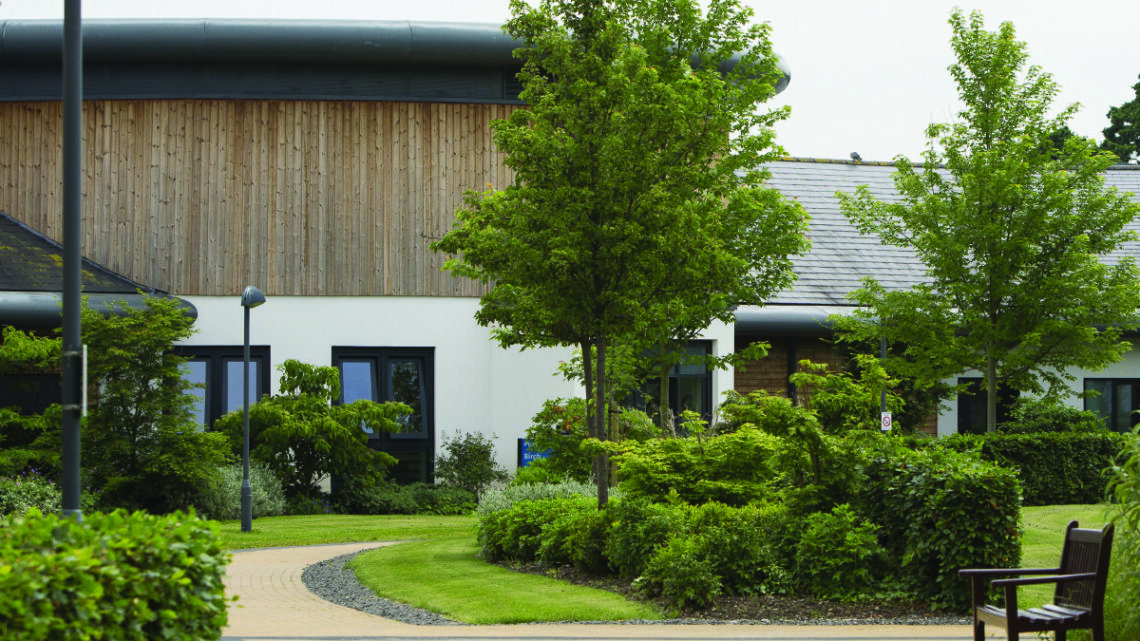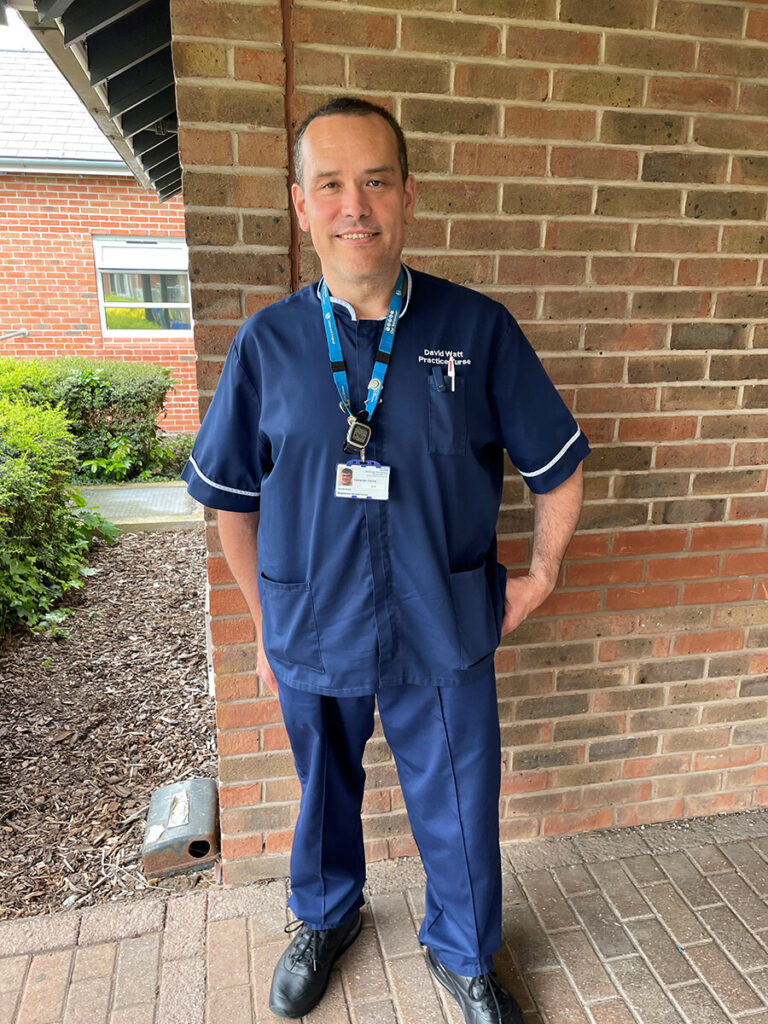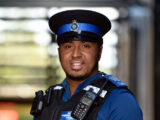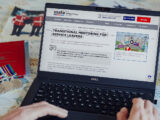
Civvy Life – A seamless transition into healthcare
David Watts Served in several different Army medical roles before resettlement and finding his current role as a practice nurse with Midlands Partnership University NHS Foundation Trust.
What’s your Military background?
I joined in 2000 as a Combat Medical Technician and Served with the Royal Army Medical Corps. After a tour of Bosnia, I trained as a nurse and joined the Queen Alexandra’s Royal Army Nursing Corps. After a tour of Iraq, I was posted to Germany before returning to the UK. I was medically discharged with recurring back problems in 2019.
How was resettlement?
I got a bit of support because of the medical discharge. So, I had a few extra things than if I’d just retired and I was close to my 22 years anyway. I was assigned a resettlement officer, but I only really touched base maybe a year afterwards, because I was pretty much sorted, fortunately.
There’s a lot of stuff you could pull from resettlement; for your CV and interview techniques. I went to a couple of financial briefs and did a couple of resettlement courses. Overall, it all went to plan.
How did you come to work with Midlands Partnership University NHS Foundation Trust?
I bought a flat in the area, just after qualifying as a nurse, having trained in Lichfield, and I was thinking tactically about where I wanted to live, because I’m foreign by birth, from South Africa, so I had no ties to anywhere in the country as such. So, I thought, well, if you buy a property in the Midlands, no matter where you get posted, you shouldn’t be too far away.

When I left the Forces, I wasn’t sure what I wanted to do. I actually worked for HM Prison Service for 10 months. I just did something completely different because since leaving school, I’ve always been in some kind of medical role. But everyone knew I was a nurse, so everyone kept on asking for (medical) advice, so in the end I thought, actually, I’ll just go and look at nursing!
I’d heard of NHS Step into Health, so I emailed the trust’s HR department to say that I’d left the Military and outlining what I did in Military primary care – and is there anywhere I could fit in? I wasn’t applying for a particular job but they invited me to come in for an interview.
They were looking at providing long term inpatients with forensic staff for primary care input, and that’s sort of what I did in the Forces. So basically, I did some extra studying at university and stepped across.
Given all your experience why did you choose to gain further qualifications?
Well, in nursing you need to maintain clinical professional development anyway. I wanted to hone skills that I might not have touched on in the Military and expand on them. It was a way of consolidating and defining my role. I used my enhanced learning credits to pay for some of it and the trust funded the other portion.
Can you tell me about the practice nurse role?
I’m a band six, practice nurse in primary care, so I facilitate a lot of what you would expect if you went to your GP practice. For instance, it’s implementing national screening policies, because invariably, some of these guys would have been in hospital for upwards of a decade and sometimes, they would not have access to a GP. We’re about making sure that we have equity in care. So, what you would expect on the outside, you would get in hospital, so we’re trying to implement some of the screening that the patients would have missed if they weren’t registered with a GP.
Why is MPFT keen to recruit Veterans?
Keep in mind that we train with the NHS, so you’ve got that one foot in the door with the NHS culture, but I think broadly speaking, because you don’t have to be a nurse or have medical experience to join the NHS. It’s a big organisation, that employs across England so you can fit into that big organisation culture from having been in the Military. The trust has also signed the Armed Forces Covenant and pledged commitment to supporting the Armed Forces Community.
There’s a lot of discipline, we have set tasks and there’s a lot of personal pride in meeting targets, and putting your best effort in. I think Military people are quite tribal and we look out for each other.
What do you miss from the Forces – and what do you most appreciate in your current role?
Well, a positive is that I know where I’m going to be 24 hours a day, 365 days a year but what I miss about the Military, conversely, is the travelling, seeing different things, and some of those opportunities, as well as a few other aspects of Military life, like the mess and things like that.
What kind of Military acquired skills or attributes do you find yourself using?
The nature of going on tours and exercises and working with a very broad range of people from different backgrounds really pays dividends. I think when we deal with patients, especially in this environment, I think sometimes you can be too clinical in your way of speaking. Military people have a way of speaking that can transcend some of those barriers and it just helps.
Sometimes strange things crop up. In the Military, we know to expect the unexpected, so that’s definitely useful. With patients there’s always something different, so you might not know what the surprise is, but you’re prepped for all sorts!
Visit: www.mpft.nhs.uk/joinus



